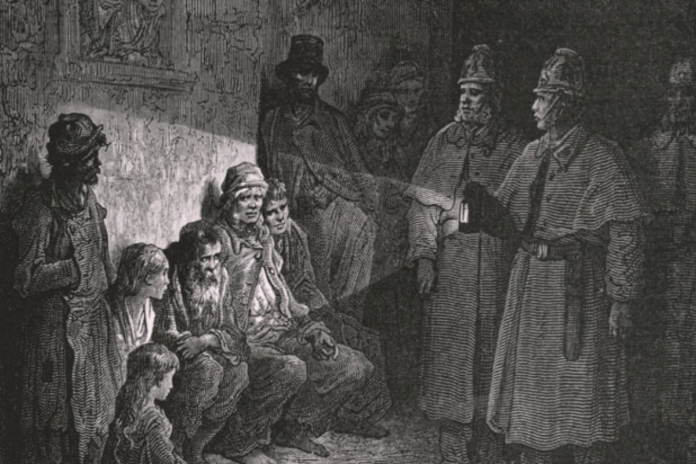The concept of British national identity is complex, influenced as much by beliefs, fears, and contradictions as by any tangible factors.
‘The British are special. The world knows it. In our innermost thoughts, we know it. This is the greatest nation on earth.’ (Tony Blair, 2007, farewell speech)
‘The Knight in the triumph of his heart made several reflections on the greatness of the British Nation; as, that one Englishman could beat three Frenchmen; that we could never be in danger of Popery so long as we took care of our fleet; that the Thames was the noblest river in Europe; that London Bridge was a greater piece of work than any of the Seven Wonders of the World; with many other honest prejudices which naturally cleave to the heart of a true Englishman.’ (Joseph Addison, 1712, writing in The Spectator)
The Ever-Evolving Puzzle Of National Identity
National identity is a curious affair. It resembles a puzzle where the pieces are molded not only by tangible factors but also by beliefs, fears, and contradictions. Moreover, it’s a puzzle that remains incomplete as national identity constantly evolves.
Beliefs undergo reshaping, and traditions face challenges, all while history progresses. Essentially, National identity is merely an interpretation, a framework we construct around these sweeping events.
Also Read: A British Genocide in Tasmania
The Narrative Of Britain: A Tale Of Contrasting Views On National Identity
The narrative of Britain and the essence of Britishness revolves around conflicting interpretations of national identity and the individuals who have advocated for them. Amidst the contemporary focus on challenges such as devolution and European integration, which dictate discussions on Britain’s identity in the 21st century, it’s crucial to reflect on the perpetual contention surrounding the concept of ‘Britain’. The notion of ‘Britain’ has historically been and will continue to be subject to debate.
Throughout a significant portion of British history, national identity has been molded by a perception of the “other” – some external force against which the British could establish their identity. Linda Colley’s influential work, “Britons,” illustrated how conflicts with Catholic France during the eighteenth century played a pivotal role in shaping the concept of ‘Britain’ from the constituent nations of England, Scotland, and Wales. Incorporated into the Union in 1801, Ireland remained a distinct and uneasy entity perceived as the “other.”
The concept of the ‘other’ extended beyond external forces and encompassed internal divisions as well. Throughout much of Britain’s modern history, Catholics, Jews, Atheists, and nonconformists were barred from sitting in Parliament. To paraphrase the Earl of Clancarty during the 1858 debate on permitting Jews to sit in the House of Commons:
Interwoven as Christianity is with the whole system of our Government, both in Church and State, I see no way by which, without offense to the cause of truth, you could commit the interests of the Church and the framing of our laws to any who deny Christ and reject the divine laws.
Transformation Of British Identity In The Nineteenth Century
During the nineteenth century, revisions to the concept of Britishness shifted the focus away from religious ‘otherness’ towards moral principles. Exclusions based on religious affiliations were lifted. However, a new category of ‘other’ emerged, with prostitutes and homosexuals becoming targets of legal action as they were deemed ‘un-British’. In the 1870 Boulton and Parke trial, Lord Chief Justice Cockburn symbolically protected the nation.
The first and greatest attribute of a great nation is the moral character of its people. The second, which is almost equally important, is the sacred cause of truth and justice.
Victorian ideals became closely associated with the essence of British identity.
Britain’s Complex Relationship With Europe
Following two world wars and the decline of its empire, Britain forged ties with Europe, yet has perpetually viewed Europe as the ‘other’. Britain retains its currency as Pounds, not Euros, and measures distance in miles, not kilometers. Its legal system is based on Common Law, incorporates juries, and upholds a sense of fair play.
Additionally, cricket is a significant cultural aspect. To quote David Cameron from his 2012 speech on Europe, Britain possesses “the character of an island nation – independent, forthright, passionate in defense of our sovereignty.”
Britain is a unique nation, regarded as a chosen destiny, with a cohesive unity of hearts and minds that remain steadfastly bonded, epitomized by the rendition of “Rule Britannia” at the Last Night of the Proms.
Or is it?
Evolving National Identity In the 21st Century
As the new century unfolds, the traditional ‘us and them’ national identity paradigm is beginning to fracture, revealing that the constituent parts of the British Isles have less in common than previously believed. While England adheres to Common Law, Scotland boasts its own legal system with a centuries-long history.
While cricket holds significance in England, Scotland does not share the same enthusiasm, and Welsh rugby relishes triumphing over the English. The influx of generations of immigrants has diversified the notion of Britishness, demonstrating that all religions and ethnicities can embody British identity.
Consequently, this has dismantled the notion that identifying internal ‘others’ is a viable method of reinforcing national identity in the 21st century.
Regardless of the results of the Scottish referendum in 2014 and the upcoming general election in 2015, issues concerning national identity will remain a central focus of British politics. The concept of ‘Britain’ will continue to evolve naturally, and we should welcome this process. We should embrace this debate, acknowledging that history and national identity are dynamic.
 Dennis Grube is a Senior Government and International Relations Lecturer at Griffith University in Brisbane, Australia. His new book is At the Margins of Victorian Britain: Politics, Immorality, and Britishness in the Nineteenth Century, detailing the laws and conventions that were legally and culturally enforced in order to bar ‘others’ from gaining power and influence in Victorian Britain.
Dennis Grube is a Senior Government and International Relations Lecturer at Griffith University in Brisbane, Australia. His new book is At the Margins of Victorian Britain: Politics, Immorality, and Britishness in the Nineteenth Century, detailing the laws and conventions that were legally and culturally enforced in order to bar ‘others’ from gaining power and influence in Victorian Britain.
Also Read: Svankmajer’s Tales In Tactility


